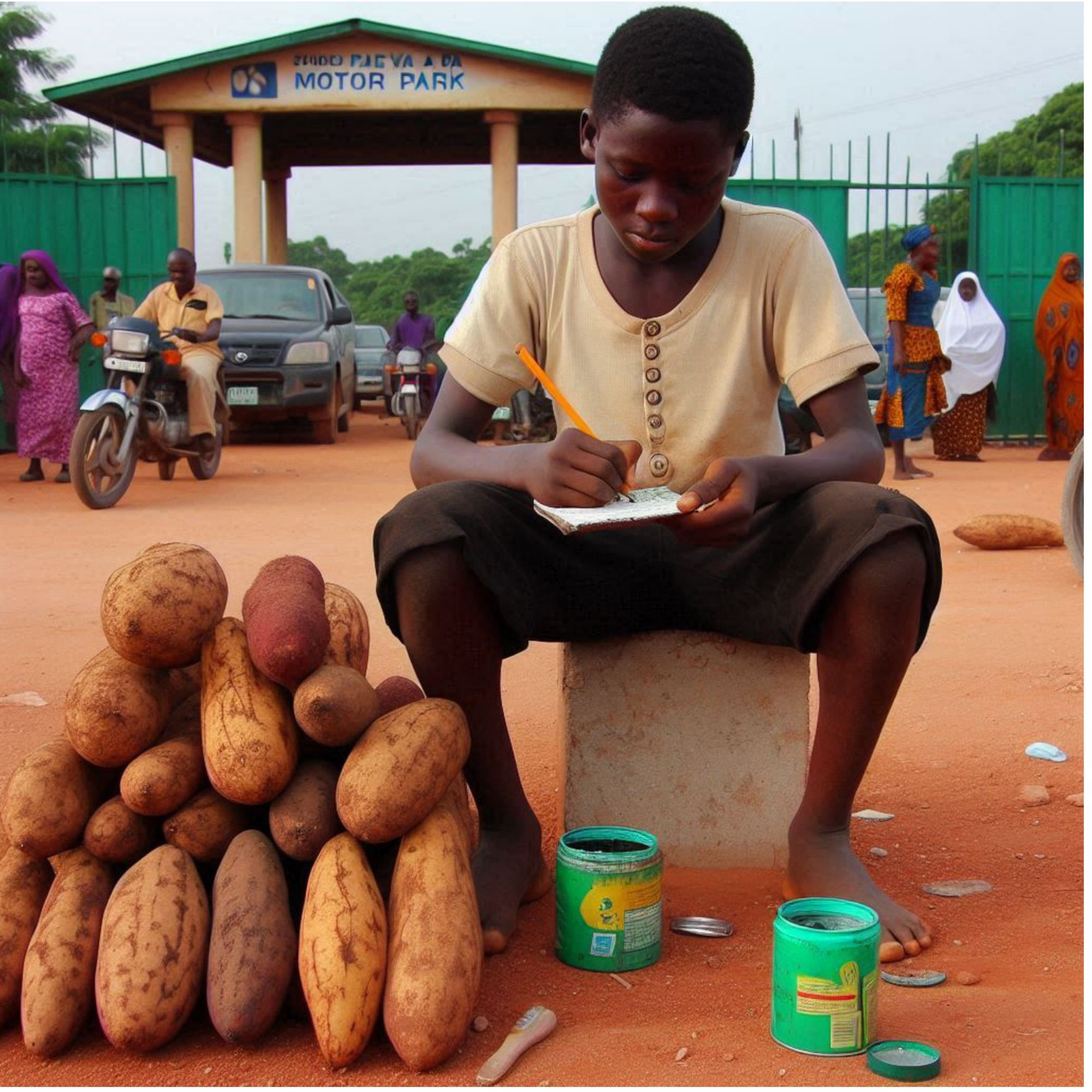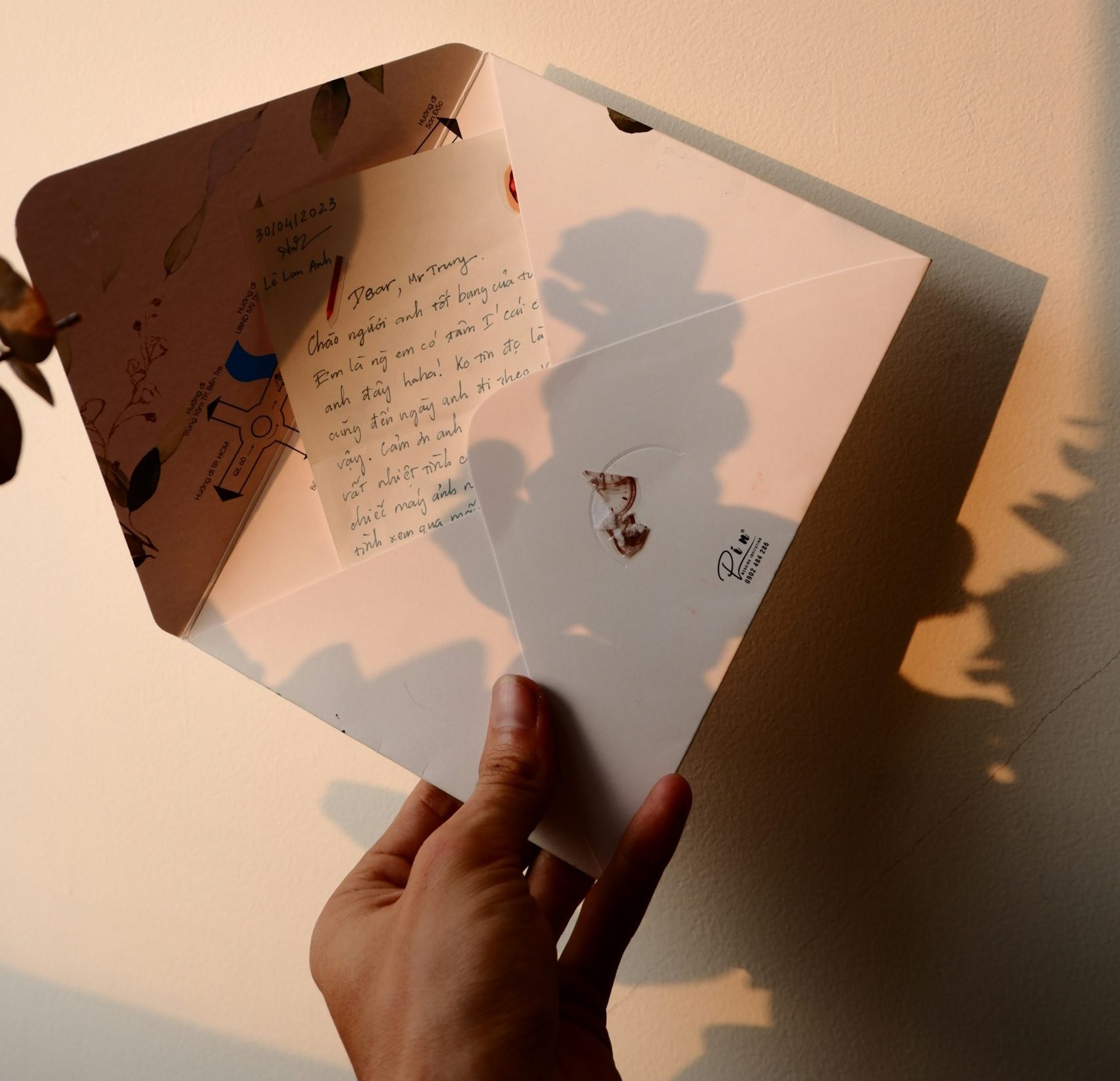Follow-up and Disappointment are 5 & 6
Previously on IN ANOTHER MANS LAND
“He no go go anywhere!” One of the other men under the tent interjected strongly. I gave him the “so you were listening” look.
“Na him be the head of the oracle in his village, he cannot do what he is saying.” He said, dropping the plier in his hands.
***
I looked at Mr Ifeanyi who refused to deny or affirm the claim. I was in some alternate universe that didn’t have the casual spirituality I was used to. I had only seen this kind of reality in Mount Zion movies.
“Oracle?” I asked out loud and imagined Mr Ifeanyi on a white wrapper and white chalk markings on his face. His bloodshot eyes from communing in a strange language with the gods of his fathers overnight. His daily life in the shrine made from palm fronds. He didn’t fit the Nollywood image in my mind. Save for the cigarette he was smoking, he looked like an ordinary 30 year-old on the wooden bench. But we know no man according to the flesh. Even if he had made human sacrifices to his gods in the past, God still saw Mr Ifeanyi as who He intended him to be from the beginning. So I clutched my Bible, waiting for Mr Ifeanyi’s response to my question.
“No dey talk that thing, I no dey play. I go find church wey I go go” He retorted at the interfering man that I was almost convinced.
“He go go church, I believe him,” I said out loud to the plier man, surprising myself. Suppose he didn’t find his way to church soon, he would have found his way to God in ten years time. That was my hope.
Days later, Gideon and I were to do a follow-up of those we had spoken. A concerned me who wanted to make sure Mr Ifeanyi heard my voice was thrown into a spiral of . He denied ever being talked to by any NCCF corper even though he affirmed that he was Mr Ifeanyi. I sighed as I dropped the call. That oracle had a grip stronger than Dangote cement.
The next person I wished I could get a call through to was a shy 15-year-old boy, Kwaghter who had no phone. Kwaghter was pronounced (kwa-te) with a long stress on the alphabet ‘e’. It took months of being laughed at by my students to learn to pronounce Tiv names properly. Some sounded English-like like Kwaghter. The name had a tinge of sophistication unlike those that you had to be able to pronounce 6 syllables as 5, even as you got the intonation wrong. Even Tiv is pronounced (ti-fi).
I had bent down to talk to Kwaghter who was seated on a low rectangular brick in front of a motor park. He had a toothbrush in his hand. In front of him was a can of green dye. Curious, I asked him about the green dye.

“Na this dye I dey use mark yam” Michael said shyly, drawing invisible lines on the sand with the bottom of his brush.
“Which yam?”
“The one wey them they pack for bus,” He gestured towards the motor park behind him. In the park, double-decker buses with “One Igbo name” Nigerian enterprises written in bold and rainbow-coloured. No one knew when these buses took off as they were always in the process of getting packed up with yams, live goats, live chicken, fruits, electrical appliances in their cartons, and other things that traders transported to different places.
“How much do they pay you?”
“Them dey pay hundred Naira for 100 yams.”
“What?” It was unbelievable. Benue state is called the food basket of the nation because food is supposed to be abundant, especially yam and Zaki Biam is known to be the biggest yam market in Africa. The yams exported out of Benue State had the green marks. These boy would have to mark a thousand yams to earn a thousand Naira. How many yams did this boy have access to marking everyday?
“Do you go to school?”
He nodded in the negative. “I no dey go again. I stop for primary three,”
“Why?” I asked him in my usual monosyllabic manner. It was absurd, and I was getting really upset. School fees here was around 6,000 Naira per term. 90 percent of schools were private-owned and were packed full with students like public schools, hence the low cost of education. There is a joke that if you got a piece of land and started running your school today, it would be packed up with students because of the high childbirth rate..
“My papa die, and my mama no get money. ” Kwaghter said, his gaze still fixed to the ground. He had to work hard to bring something to the table, even if it meant that he was being exploited. Further discourse with the shy little teenager and I wanted to become rich on the spot. The school fees and a little more money for textbooks, notebooks, school uniforms, pocket money and transport fare, and the boy would be out of the business of marking yams.
After futile attempts at making him look at me, he eventually looked at my Bible with sad eyes. And together, we read the Lord’s prayer in Mattew chapter 6.
Read Life after School: Once upon a Finalist
“Our Father, who art in heaven,” We started, and I was shaken up with emotion. Never had that recitation made much sense to me. I reassured Kwaghter that the God they taught him when he was in school was his father in heaven, and a son had access to his father whatever time, day or situation.
I looked at him again and saw hope in his eyes. He was waving me goodbye. He had promised to talk with God like he would a physically present father.
As I looked over the list of other people to follow up, I wished I had 50,000 Naira which would have sorted Kwaghter for the time being. By the logic of God being our father, Kwaghter was my brother, just like every other boy in the same situation as him.
To be continued…Join 60+ email subscribers to be the first to receive the next episode.








2 thoughts on “In Another Man’s Land (Episode 2)”